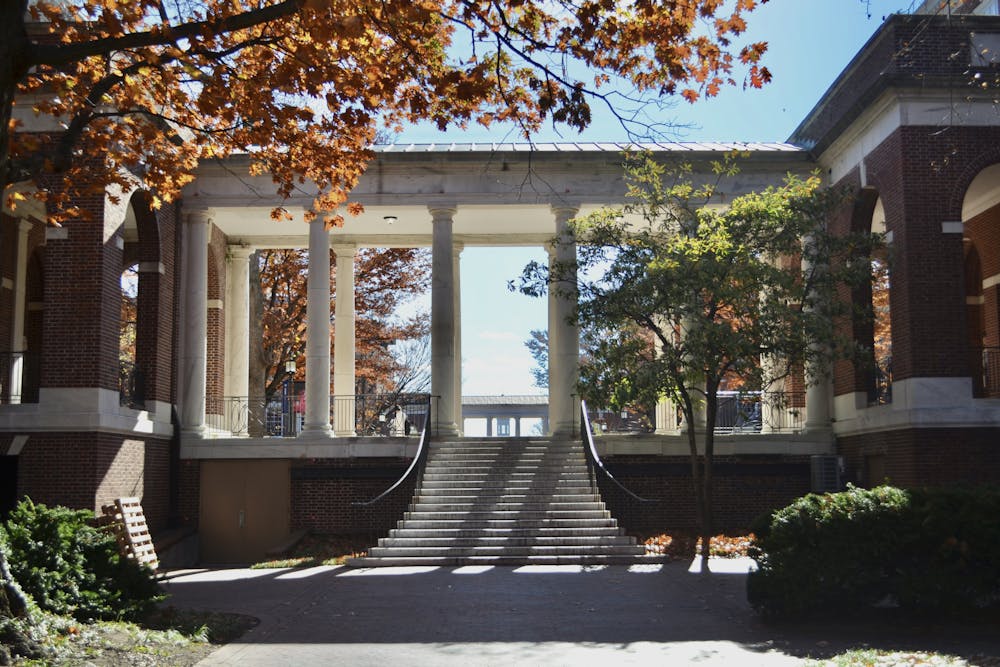On Nov. 13, the University announced in a schoolwide email that tuition would be free for students whose families make under $200,000 a year. This accounts for approximately 85% of American households. The University is also offering additional aid to cover living expenses and other fees for students whose families earn up to $100,000.
As the announcement was sent out, students flooded social media with excitement. From reposts to online discussions, students quickly voiced their enthusiasm and celebrated the University’s decision.
One such student, sophomore Reshmita Nayudu expressed her excitement toward the news in an email to The News-Letter.
“I think it’s amazing, as financial aid is one of the most significant barriers to attending college and also results in a considerable amount of debt post-graduation,” she wrote. “This will definitely allow a lot more people to attend Hopkins and will also lessen the financial burden on current students. I’m excited to see this implemented.”
Similarly, in an email to The News-Letter, junior Ayan Bhatnagar praised the announcement and emphasized its long-term benefits.
“I think this is a great implementation! These financial aid policies are what help students from any background to access higher education,” he wrote.
Other students highlighted the personal impact the donation will have on their ability to participate in additional opportunities. For many, the announcement marked not only financial relief, but also the opening of doors that had felt out of reach.
In an email to The News-Letter, junior Brandon Breznik highlighted this impact. He explained that the policy would ease longstanding financial pressures and allow students like him to more fully engage in the academic and extracurricular experiences Hopkins offers.
“The implementation of the new financial aid program brought me such immense joy reading it, being able to incorporate the middle-class families who usually floated in a grey zone of financial aid,” he wrote. “I know for my family in particular, this is going to help support me in all my endeavors and even allow me to participate in more financially demanding programs like studying abroad.”
Other students also emphasized the sense of relief and stability the new policy provides. Junior Luke Chez reflected on the broader significance of the announcement in an email to The News-Letter.
“In a time with great confusion and stress surrounding financial aid amongst federal budget cuts and other obstacles, what has been a sore spot for many students has now become a simpler solution as well as a welcome reprieve,” he wrote. “As an undergraduate student myself, my hope is that I, among other undergraduates here, will find comfort in the knowledge that we can instead focus on what we students do best. Learn, build, grow. And in doing [so,] we can continue to foster the innovation we do so well at here at Hopkins for years to come.”
Across the undergraduate class there was a shared sense of optimism and appreciation for the expanded financial support. Several students noted that the policy represents a broader shift toward accessibility and reflects the University’s commitment to easing financial barriers.
For instance, senior Will Taggart expressed gratitude for the increased accessibility the policy will create for future and current students in an email to The News-Letter.
“I think it’s great that the [University] is opening up opportunities for people [and not letting their] finances [limit] them,” he wrote.
Further, other students echoed similar feelings, emphasizing that even those not personally eligible for the aid recognize its significance for their peers. In an interview with The News-Letter, freshman Dhruva Lahoti noted that the policy signals progress toward making higher education more equitable.
“It’s a good step forward for Hopkins and making high-level education much more affordable,” he said. “It doesn’t impact me, but I’m very glad for a lot of my friends that it does impact and it makes me happy that they don’t have to worry about finances as much as they might have had to before – which is wonderful.”
Myra Saeed contributed to the reporting of this article.





